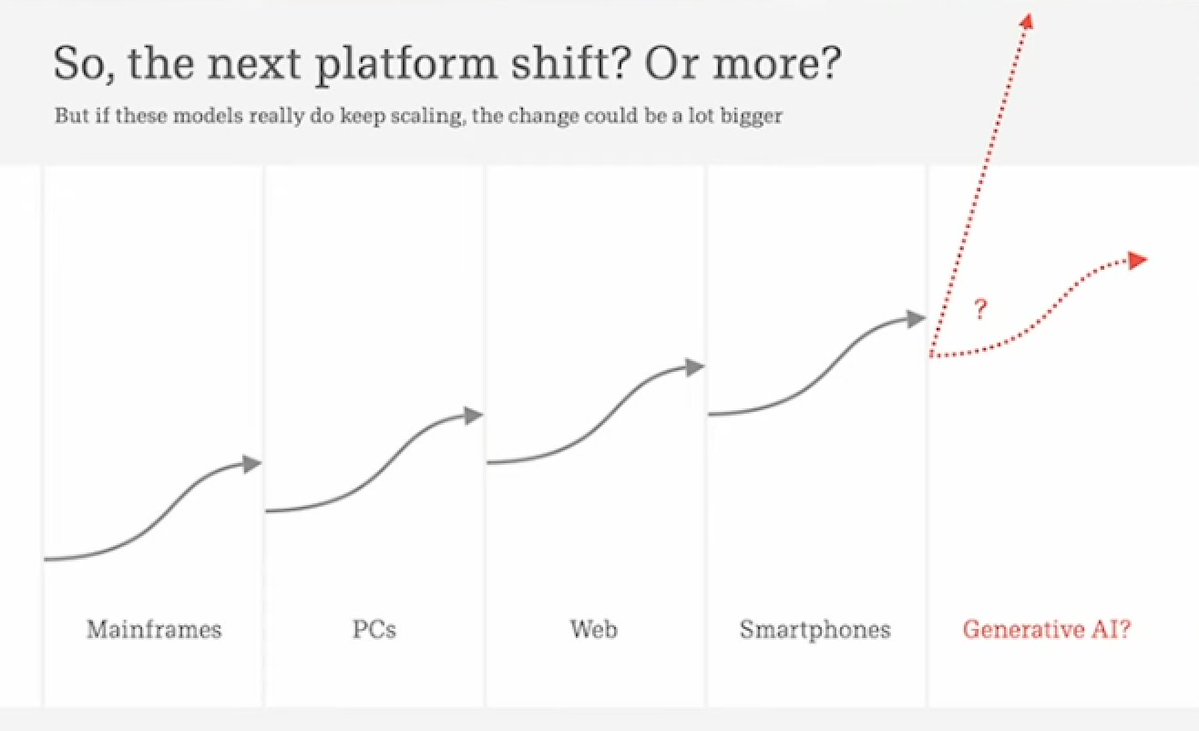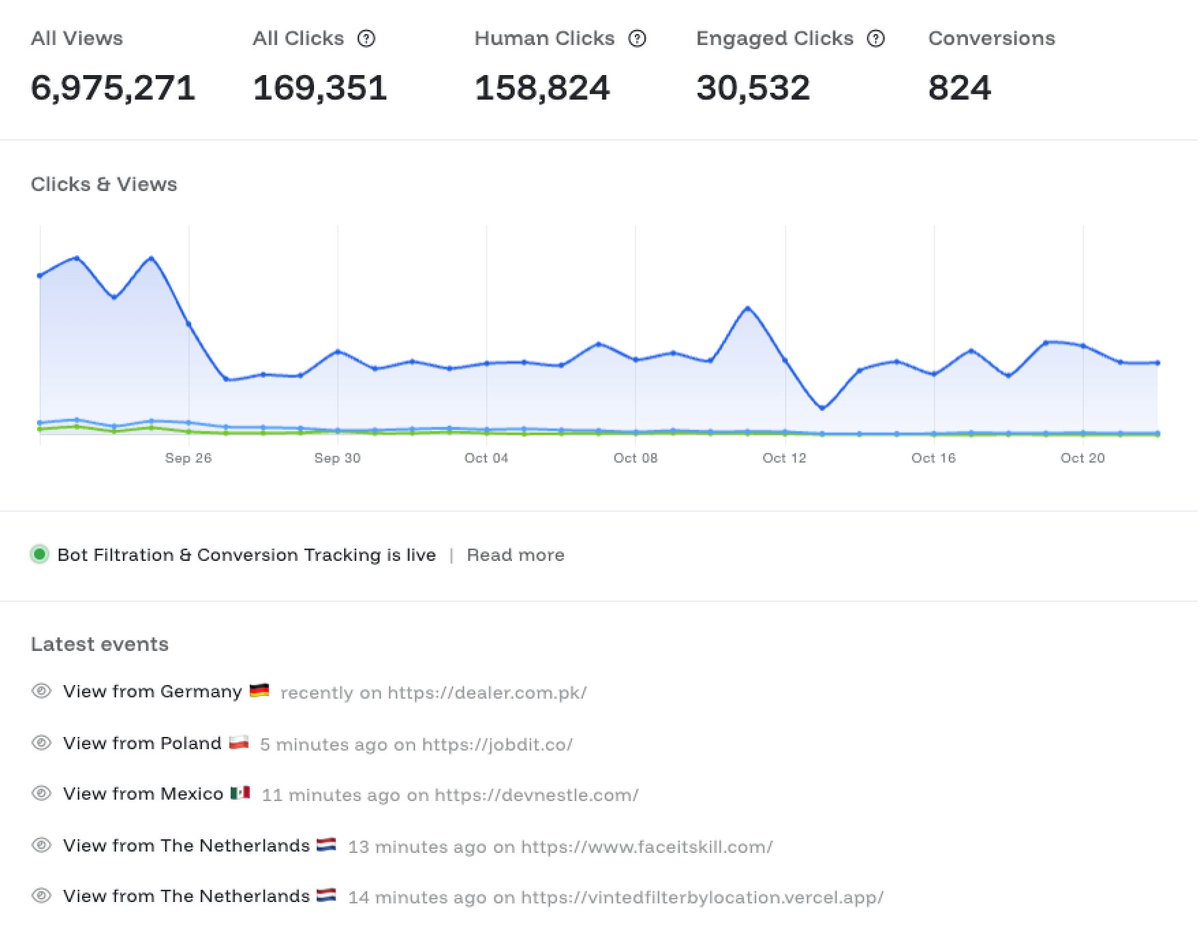I've tried all (24) AI coding agents & IDEs 😵💫
[Cursor, Softgen, Windsurf, Wrapifai, Copilot, Lovable, Bolt, v0, Replit, MarsX, Claude, AmazonQ, Pear, Devin, Github Spark, IDX, Webdraw, Tempo, Cline, Continue, Databutton, Base44, Qodo, Aider]
The Vibe Coding giga-thread:
[Cursor, Softgen, Windsurf, Wrapifai, Copilot, Lovable, Bolt, v0, Replit, MarsX, Claude, AmazonQ, Pear, Devin, Github Spark, IDX, Webdraw, Tempo, Cline, Continue, Databutton, Base44, Qodo, Aider]
The Vibe Coding giga-thread:
1/24. @SoftgenAI
- works well for both coders and non coders
- can fix its own bugs
- can host the web apps
It worked really well for my little project (Vacation calendar manager)
- works well for both coders and non coders
- can fix its own bugs
- can host the web apps
It worked really well for my little project (Vacation calendar manager)
2. Cursor
- a fork of a VC code
- raised loads of funding turning into a unicorn
- founders went on a Lex Fridman pod
- turns coders into 10x devs. Not the best fit for non-coders.
- a fork of a VC code
- raised loads of funding turning into a unicorn
- founders went on a Lex Fridman pod
- turns coders into 10x devs. Not the best fit for non-coders.
3. Wrapifai
- perfect for mini tools (lead magnets or tools to drive SEO traffic)
- mostly produces functioning app right away with one prompt
- doesn't handle serious apps
- unlimited apps (instead of per token..)
- perfect for mini tools (lead magnets or tools to drive SEO traffic)
- mostly produces functioning app right away with one prompt
- doesn't handle serious apps
- unlimited apps (instead of per token..)
4. Windsurf (works well for advanced apps. my top 3)
- acts as a true agent
- offers deepseek
- can use the web search
- has a memory.
- acts as a true agent
- offers deepseek
- can use the web search
- has a memory.
5. GitHub Copilot ( the OG of this game, started back in 2020 )
- can generate code
- handles large codebases
- can merge PRs, fix bugs, search code
- can generate code
- handles large codebases
- can merge PRs, fix bugs, search code
6. Lovable
- fastest-growing EU based startup today ($10M ARR)
- has native supabase integration
- has the best AI+NoCode mix on the market
- fastest-growing EU based startup today ($10M ARR)
- has native supabase integration
- has the best AI+NoCode mix on the market
7. Bolt
- started as a side project of stackblitz and went huge raising $105M
- works similar to softgen, lovable & windsurf
I built several lead magnets using bolt
- started as a side project of stackblitz and went huge raising $105M
- works similar to softgen, lovable & windsurf
I built several lead magnets using bolt
8. v0
- best for making well-designed web pages or UIs
- doesn't work well for fullstack apps
- can use figma as a starting point
- lets you edit elements one by one
- best for making well-designed web pages or UIs
- doesn't work well for fullstack apps
- can use figma as a starting point
- lets you edit elements one by one
9. Replit
- most advanced AI Agent for coding imho
- has two modes: Agent or Assistant
- true full stack app generator. Has its own server, db, hosting...
Here is the real app I built using it
seobotai.com/broken-link-ch…
- most advanced AI Agent for coding imho
- has two modes: Agent or Assistant
- true full stack app generator. Has its own server, db, hosting...
Here is the real app I built using it
seobotai.com/broken-link-ch…
10. MarsX (my own product)
- a mix of AI, NoCode and High Code
- I built @seobotai, @indexrusher and all my other products using marsx
- it basically takes the whole coding world to the next level since it isn't a website builder, but "SaaS builder"
- a mix of AI, NoCode and High Code
- I built @seobotai, @indexrusher and all my other products using marsx
- it basically takes the whole coding world to the next level since it isn't a website builder, but "SaaS builder"
11. Claude
- it can write and run code
- super easy to get started (free)
- works for basic cases. e.g. building components or learning coding
- it can write and run code
- super easy to get started (free)
- works for basic cases. e.g. building components or learning coding
12. Amazon Q
- very few people use it
- totally lagging behind the top players
- very few people use it
- totally lagging behind the top players
13. Pear AI
- entered into YC
- had a huge drama around forking a github repo
- had a mentor call with them, two very talented guys taking an alternative path on competing with cursor
- entered into YC
- had a huge drama around forking a github repo
- had a mentor call with them, two very talented guys taking an alternative path on competing with cursor
14. Devin
- super expensive
- targets corporate world
- acts as a junior dev in a dev team
very good review:
- super expensive
- targets corporate world
- acts as a junior dev in a dev team
very good review:
15. Github Spark
- works well for small or demo apps
- still behind the "waitlist"
- works well for small or demo apps
- still behind the "waitlist"
16. IDX
- free alternative to cursor
- can build mobile apps
- uses gemini
- free alternative to cursor
- can build mobile apps
- uses gemini
17. Webdraw
- best for people with zero coding experience
- totally genius UX
- free
- turns sketches into web apps
- best for people with zero coding experience
- totally genius UX
- free
- turns sketches into web apps
18. Tempo Labs
- Generates full-stack apps using a text or image prompt
- It starts by making an architecture and diagrams
- I think they have the best AI Coding UX, wow
- Generates full-stack apps using a text or image prompt
- It starts by making an architecture and diagrams
- I think they have the best AI Coding UX, wow
19. Cline
- VC code plugin
- works for large codebases
- supports any LLM
- runtime awareness
- VC code plugin
- works for large codebases
- supports any LLM
- runtime awareness
21. Databutton
- from Norway
- backed by VCs who backed one of my startups
- has very unique approach, different from most of the players
- works great for true nocoders
- from Norway
- backed by VCs who backed one of my startups
- has very unique approach, different from most of the players
- works great for true nocoders
22. Base44
- for noncoders
- all in one
- creates dashboard-like apps pretty well
- for noncoders
- all in one
- creates dashboard-like apps pretty well
23. Qodo
- for coders
- can write tests, refactor and generate code
- supports all llms(including deepseek)
- for coders
- can write tests, refactor and generate code
- supports all llms(including deepseek)
24. Caffeine AI
- new player
- too early to say anything. for now just putting them into the list to come back to them later when they launch
- new player
- too early to say anything. for now just putting them into the list to come back to them later when they launch
25. Aider
- a terminal app for generating web apps out of prompts
- a terminal app for generating web apps out of prompts
26. That's it.
I built lots of AI tools using AI. Some of my projects:
↳ unicornplatform.com
↳ listingbott.com
↳ seobotai.com
↳ indexrusher.com More here: johnrush.me
I built lots of AI tools using AI. Some of my projects:
↳ unicornplatform.com
↳ listingbott.com
↳ seobotai.com
↳ indexrusher.com More here: johnrush.me

• • •
Missing some Tweet in this thread? You can try to
force a refresh








